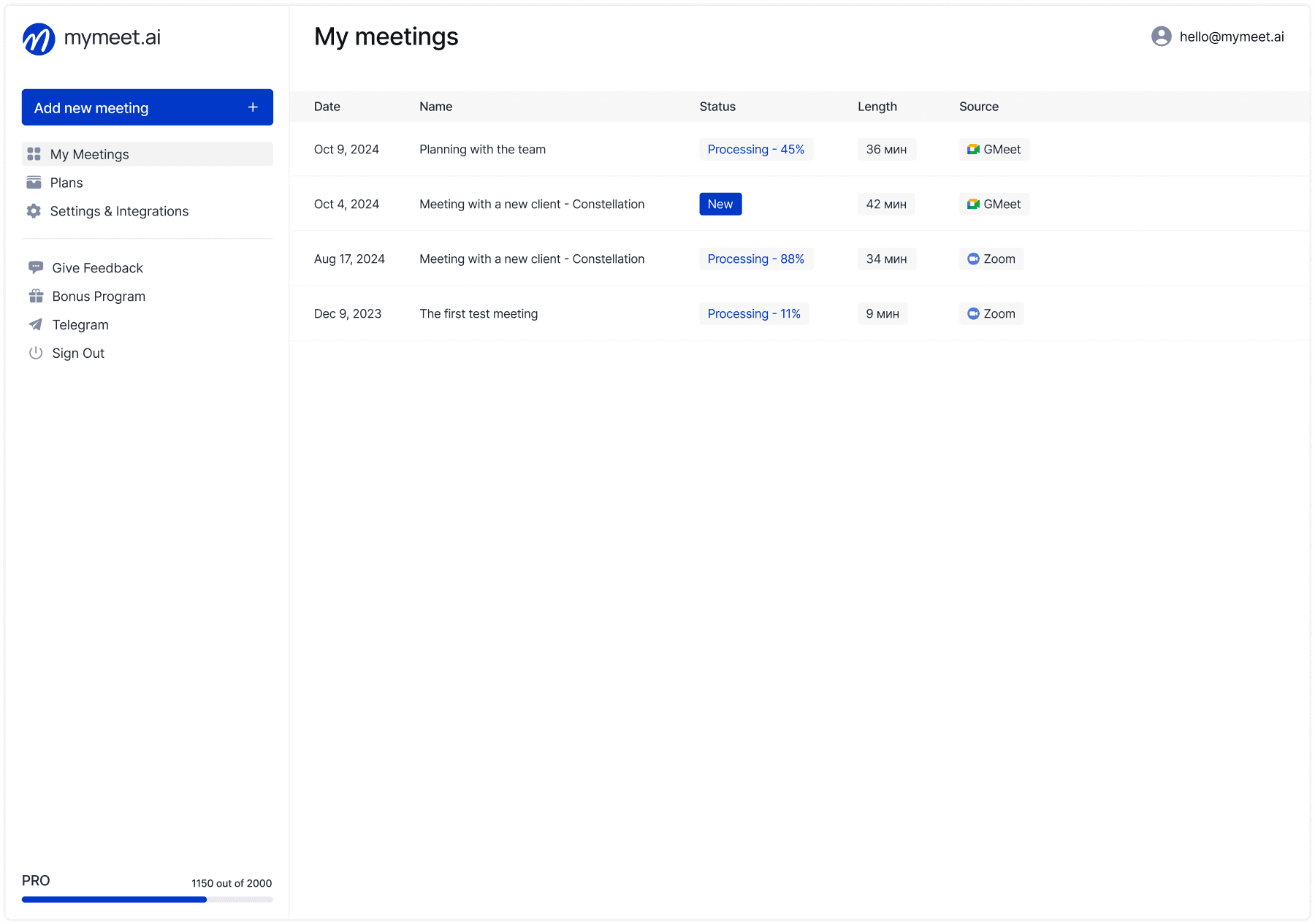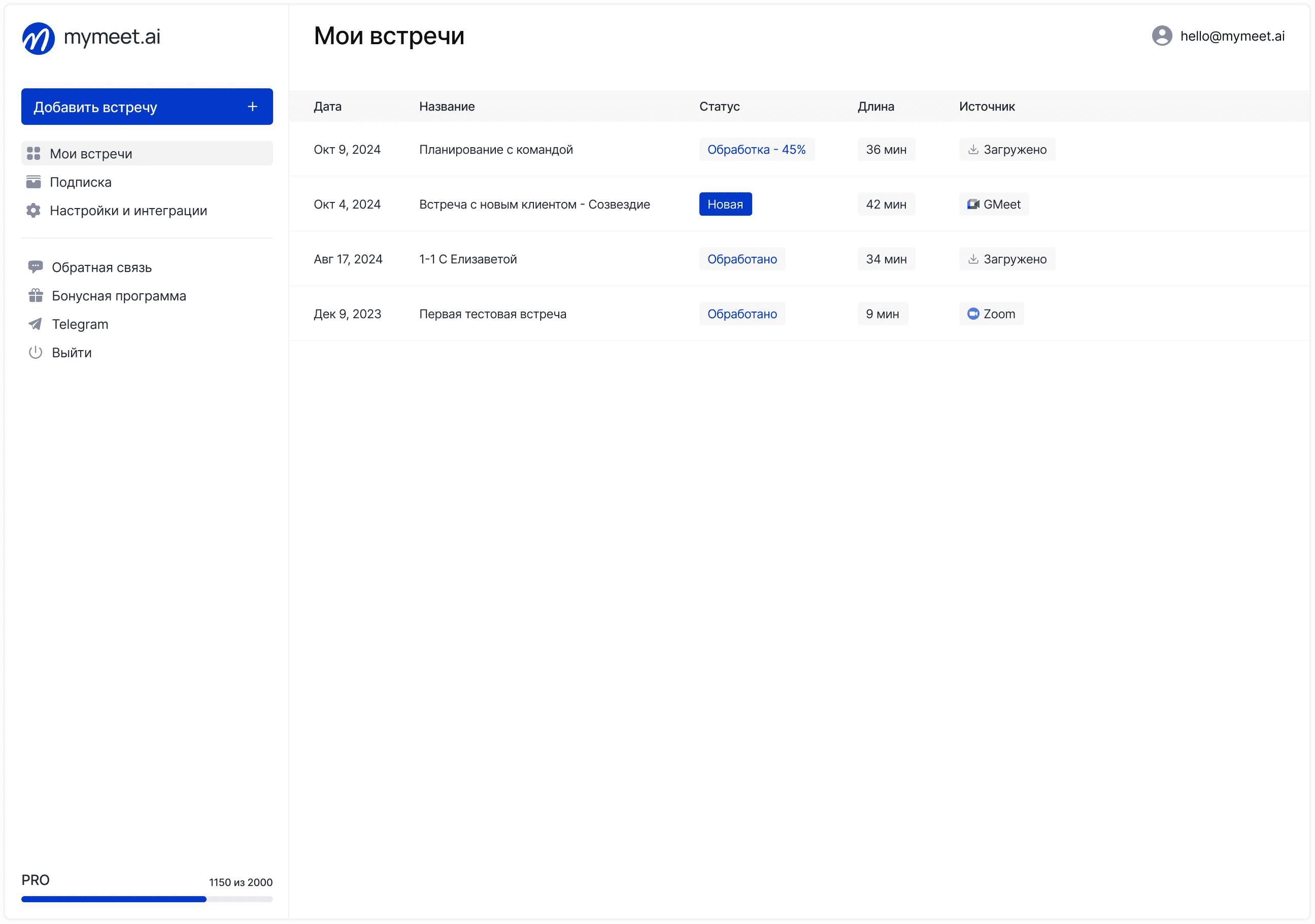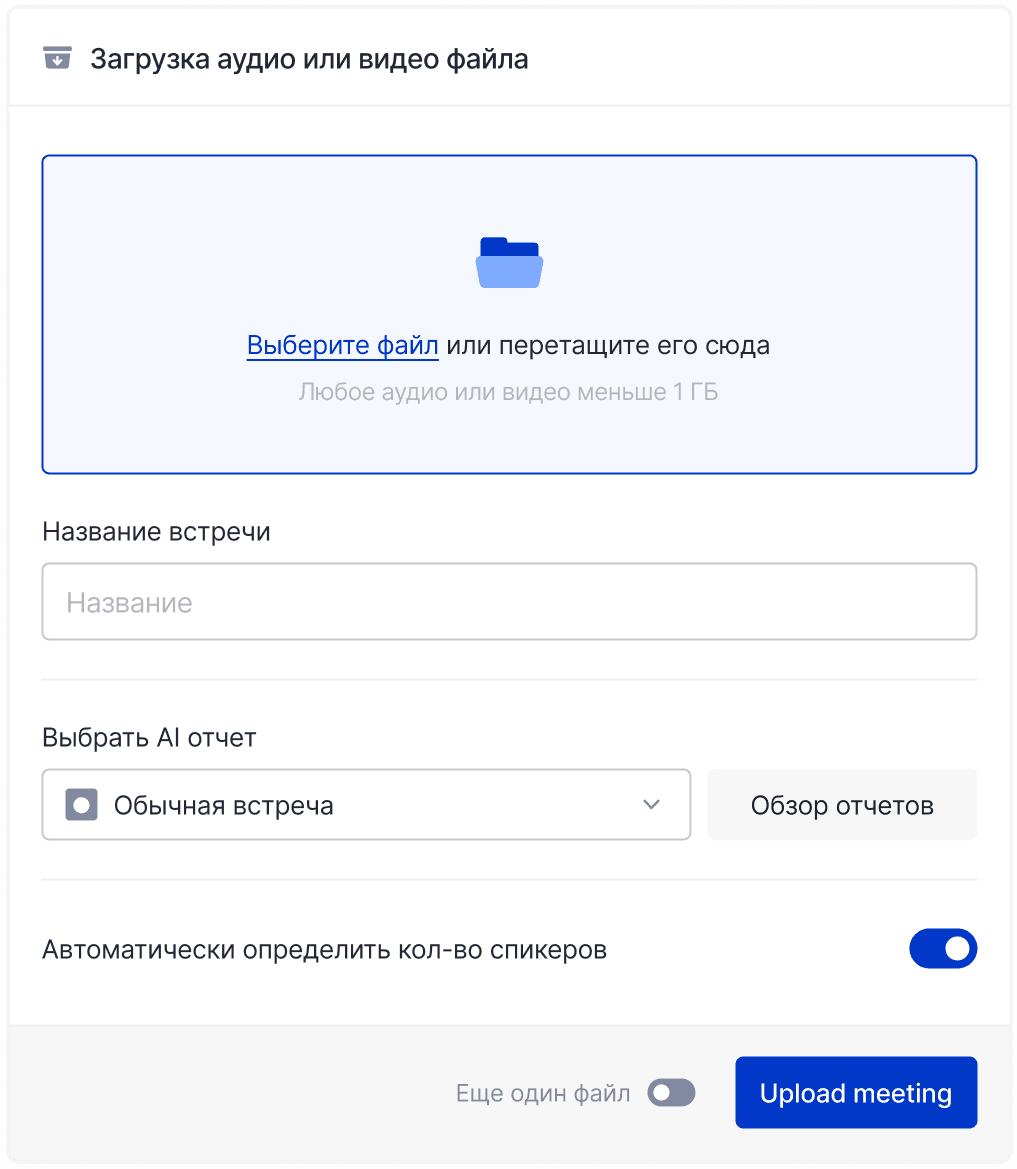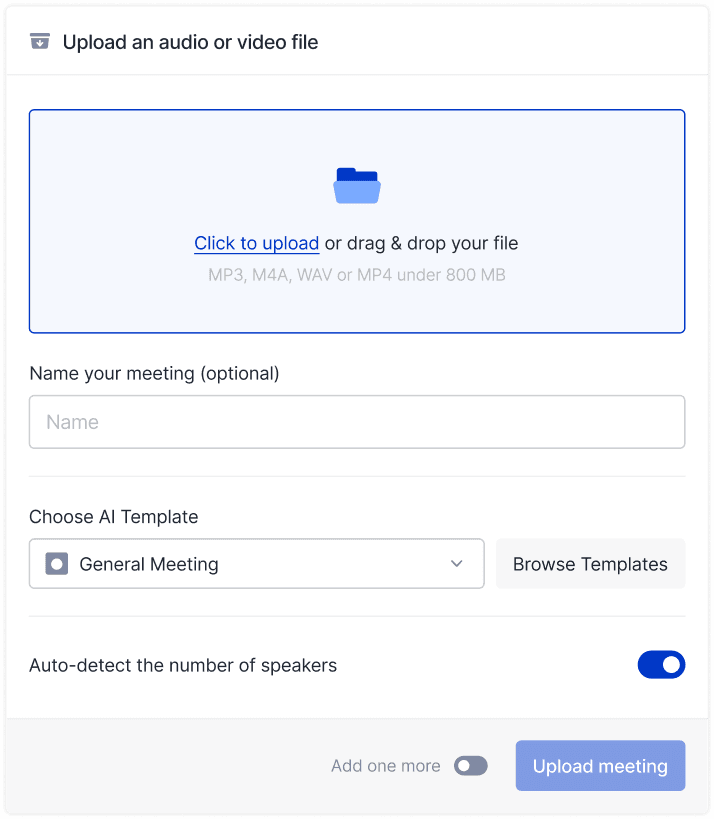Technology & AI

Ilya Berdysh
Mar 12, 2025
·
Updated on
Jan 7, 2026
For a startup where every customer counts and resources are limited, choosing the right CRM system can be a decisive factor for success. According to Salesforce, companies using CRM increase sales by an average of 29% and lead conversion by 32%. For young companies, these figures can mean the difference between rapid growth and slow decline.
But how do you avoid making the wrong choice with a limited budget and uncertain prospects? Let's explore the features of CRM for startups and criteria for selecting the optimal solution.
Why Startups Need a CRM System
Beginner entrepreneurs often ask: "Why do we need a CRM if we don't have many customers yet?" The development history of successful startups shows that early implementation of a customer relationship management system creates a foundation for stable growth.
A CRM for startups solves several critical tasks. First, it centralizes all customer information, making it accessible to the entire team. This is especially important when sales, marketing, and support functions are often performed by the same people.
Second, CRM helps track the sales funnel and forecast revenue—a critically important aspect for companies reporting to investors or planning to attract funding.
Third, a structured approach to working with customers reveals patterns in their behavior and helps adapt the product to the real needs of the market—a key factor for early stages of startup development when searching for product-market fit.
7 Key Criteria for Choosing a CRM for Your Startup
When launching a startup, choosing the right CRM system can significantly impact your future success. At the beginning, the budget is limited, but it's extremely important to choose a system that will grow with your business and not become a hindrance to development in the future.
1. Scalability of the Solution
The main feature of a startup is unpredictable growth. Your CRM should easily scale from dozens of contacts to thousands and millions. It's important that the system supports the increasing complexity of business processes: customer segmentation, sales funnel customization, adding custom fields.
Evaluate the capabilities of different pricing plans and make sure that transitioning between them won't require data migration or team retraining. The ideal CRM grows with your business while maintaining the accumulated history of customer interactions.
2. Ease of Use
With a startup's limited resources, it's critically important that the team quickly masters the new tool and begins to benefit from it. Complex systems often remain unused, and the data in them becomes outdated.
Evaluate the intuitiveness of the interface, availability of a mobile application, and the ability to quickly add contacts and deals. A good CRM should save the team's time, not create additional workload.
3. Integration Capabilities
Startups typically use many tools: email services, messengers, analytics systems, meeting tools. The ability of a CRM to integrate with this ecosystem is critically important for creating a unified information space.
Assess the availability of ready-made integrations with popular services, as well as the openness of the API for creating your own connectors. Particularly valuable are integrations with tools for conducting meetings and analyzing communications, which will automatically record the results of customer negotiations.
4. Total Cost of Ownership
When you have a startup, every penny counts. Yes, the monthly subscription is the first thing that catches your eye, but don't fall into the trap! Consider all hidden costs: how much time will it take to set up the system, how will it fit into your current tools, will you need to train your team from scratch. What if additional customizations are required? All these "little things" can seriously impact your budget, turning a cheap solution into an expensive pleasure.
Many CRMs offer special rates for startups or a free usage period. This is a good opportunity to test the system without financial obligations. However, remember: there's no such thing as a free lunch—assess what limitations the free tier imposes and how painful the transition to a paid plan will be.
5. Mobile Access
A startup team is constantly on the move—continuous meetings, calls on the go, negotiations in cafes. A good mobile CRM is a lifesaver in such conditions: open it, enter meeting details while you still remember, check the client's history before a call. Just don't confuse a real application with a clumsy mobile version of the website—the difference is like between a sports car and a cart.
Evaluate the functionality of the mobile application: the ability to add contacts and deals, access to interaction history, offline mode operation. Data synchronization between devices should happen instantly and without failures.
6. Analytics and Reporting
For strategic decision-making, a startup needs objective information about the state of sales, marketing effectiveness, and customer satisfaction. Powerful analytics in CRM helps identify bottlenecks and growth points.
Evaluate the set of ready-made reports, the ability to create custom dashboards, and export data for further analysis. It's important that the system allows tracking key metrics of your business: conversion at different stages of the funnel, average check, LTV, customer retention rate.
7. Technical Support
Startups rarely have dedicated IT specialists for setting up and supporting a CRM. Therefore, the quality of documentation, availability of training materials, and responsiveness of technical support become critically important.
Evaluate the availability of support through different channels: chat, email, phone. Study the knowledge base, training videos, user community. Some CRMs offer a personal manager to help with system setup and adaptation—this can be a valuable bonus for startups.
Top 5 CRMs for Startups in 2026
When launching a startup, think ahead. Migrating an entire customer base and sales history is a real nightmare, which we've experienced firsthand. Choose a CRM as a long-term partner that you won't have to part with at the first growth spurt of your company.
To save your nerves and time, we've sifted through numerous systems and selected the top five CRMs for young projects in 2025. These are solutions that will handle tasks at the start and won't let you down when your business takes off.
1. HubSpot

HubSpot is an excellent choice for startups that focus on content marketing and inbound requests. The free version allows you to manage contacts and deals, and as you grow, you can connect additional marketing, sales, and support tools.
Advantages:
Comprehensive ecosystem for marketing, sales, and service
User-friendly CRM with visual sales funnel
Powerful automation and email marketing tools
Huge library of integrations with other services
Differences from competitors: HubSpot stands out in the market with its integrated "all-in-one" approach. Unlike specialized solutions from competitors, HubSpot offers a complete ecosystem of business tools. The platform pays special attention to inbound marketing and content strategies, which makes it particularly attractive for SaaS startups and B2B companies seeking to build a systematic approach to customer acquisition.
2. Pipedrive

Pipedrive focuses on sales funnel management and is ideal for startups with an active sales model. The intuitive interface allows the team to get started quickly without lengthy training.
Advantages:
Intuitive visual sales funnel
Convenient mobile application with full functionality
Flexible settings for different types of sales
Detailed analytics and sales forecasting
Differences from competitors: Pipedrive differentiates itself by focusing specifically on the sales process. While other CRMs try to cover all aspects of business, Pipedrive does one thing but does it excellently. The system is designed by salespeople for salespeople, which is noticeable in every detail of the interface.
3. Zoho CRM

Zoho CRM offers high flexibility in customization and numerous integrations at a relatively low cost. Especially useful for technology startups with non-standard business processes.
Advantages:
Flexible configuration of fields, modules, and processes
Powerful business process automation capabilities
Integration with other products in the Zoho ecosystem
Affordable price with wide functionality
Differences from competitors: Zoho CRM stands out for its affordability while maintaining a high level of functionality. The system offers a balance between depth of customization and ease of use, which is especially valuable for startups with limited budgets but specific needs.
4. Salesforce

Salesforce is the industry standard with maximum scalability capabilities. Despite the high cost and implementation complexity, it can be the optimal choice for startups planning rapid growth and having secured serious investments.
Advantages:
Unlimited customization and scaling capabilities
Huge AppExchange ecosystem with thousands of integrations
Powerful analytics and reporting tools
Advanced features based on artificial intelligence (Einstein AI)
Differences from competitors: Salesforce differs in unparalleled depth of customization and scalability. While other CRMs may "hit the ceiling" as the company grows, Salesforce has virtually no limitations. It's the only CRM that can grow from a startup to a corporation without the need for migration.
5. Monday CRM

Monday CRM stands out with its visual approach to sales and project management. Suitable for startups where customer work is closely linked to project implementation or product development.
Advantages:
Unique visual interface with color coding
Flexible boards and views for different tasks
CRM integration with project management
Simple to create automations without code
Differences from competitors: Monday CRM differs in its visually-oriented approach, which makes working with data more visual and intuitive. Unlike traditional CRMs, Monday successfully balances on the edge between customer management and project management, which is especially valuable for product companies and service businesses.
Comparative Table of CRMs
CRM | Strengths | Weaknesses | Optimal for | Starting price |
HubSpot | Free basic plan, scalability, powerful marketing | High cost of advanced features | Startups focusing on inbound marketing | From $0 |
Pipedrive | Ease of use, focus on sales funnel | Limited marketing functions | B2B startups with active sales | From $14.90/month |
Zoho CRM | Flexible customization, integrations, good price/functionality ratio | More complex to learn | Tech startups with non-standard processes | From $12/month |
Salesforce | Maximum scalability, app ecosystem | High cost, implementation complexity | Fast-growing startups with investments | From $25/month |
Monday CRM | Visual interface, project approach | Less deep customer analytics | Startups with project specifics | From $10/month |
How to Maximize CRM Effectiveness in a Startup
Implementing a CRM is a change in approach to customer work. To make CRM truly work for your business, follow several principles.
Start by clearly defining implementation goals and key success metrics. What exactly do you want to improve: lead conversion, customer retention, average check? Set specific numerical indicators and deadlines for achieving them.
Assign someone responsible for implementing and supporting the CRM. In a small team, this could be the sales or marketing manager, but it's important that this person has enough authority to involve the entire team.
Ensure quality team training. Even the most intuitive CRM requires understanding of basic working principles. Conduct a series of training sessions, prepare simple instructions for typical operations.
Don't try to automate everything at once. Start with basic functionality: contact and deal management. When the team masters it, gradually connect additional modules: marketing, support, analytics.
Regularly analyze data from the CRM and adjust your strategy. The value of the system is in the accumulated information about customers and sales. Use it to make informed decisions about product development and marketing activities.
CRM and Customer Communication: The Role of AI Assistants
In 2026, at the intersection of CRM and artificial intelligence, solutions are emerging that can take customer work to a new level. AI assistants analyze communication, automate routine tasks, and provide valuable insights to increase sales.
The main directions of AI application in startup customer service:
Automatic categorization and prioritization of incoming requests
Analysis of customer sentiment in correspondence and calls
Prediction of potential problems and churn prevention
Generation of personalized offers based on interaction history
Analysis of meeting and call recordings with extraction of key points and commitments
For startups, tools that help extract maximum information from each customer interaction are especially valuable—this allows faster testing of hypotheses and adapting the product to market needs.
How mymeet.ai Enhances CRM for Startups

In the ecosystem of customer work tools, mymeet.ai occupies a special place, connecting communication and CRM systems. This AI assistant for customer meetings solves one of the key problems of startups—quality recording of the results of negotiations and meetings.

Traditionally, after an important meeting, the manager must manually enter results, agreements, and tasks into the CRM. This takes time and is often done formally, without deep analysis. As a result, valuable information about customer needs, objections, and insights remains outside the system.

mymeet.ai automates this process. The AI assistant connects to an online meeting, records it, creates a detailed transcript with division by speakers and topics, and then automatically highlights key information:
Discussed problems and customer needs
Agreements reached
Assigned tasks with responsible parties and deadlines
Potential opportunities for upselling
Risk signals and objections
Thanks to integration with popular CRM systems (including Zoom, Google Meet, amoCRM, and Telegram), all this information automatically goes into the customer card, enriching your understanding of their needs and deal status.

Especially valuable for startups is that mymeet.ai allows asking questions about meeting results through chat. For example, you can ask: "What upselling strategies were discussed at the meeting?" or "What blockers did the client mention?"—and get a structured answer based on conversation analysis.
Conclusion: Choosing a CRM that Grows with Your Business
When choosing a CRM for your startup, you're laying the foundation for the future. It's like buying your first apartment—you want to move in right away, but you're also thinking if there will be enough space when the family grows.
The ideal system should solve your current headaches, but more importantly—grow with you. Think one step ahead: a system that seems simple and convenient now shouldn't become a bottleneck when your customer base triples and your team doubles.
The optimal strategy is to start with the basic functionality that's really needed at the current stage, and gradually increase the system's capabilities along with business expansion. It's critically important from the very beginning to ensure quality collection and analysis of customer data.
Supplementing CRM with modern communication analysis tools, such as mymeet.ai, allows startups to extract maximum benefit from each customer interaction, adapt the product faster to real market needs, and ultimately provide higher growth rates.
Frequently Asked Questions about CRM for Startups
At what point does a startup need a CRM?
You should implement a CRM from the moment of the first regular sales or even at the stage of actively testing hypotheses with potential customers. The earlier you start systematizing information about customers, the more insights you'll be able to get for product development.
Can I start with a free version and switch to a paid one?
Most modern CRMs provide a painless transition from free to paid tariff. It's important to assess what limitations the free version has and how critical they are for your business. Some systems (such as HubSpot) offer full-fledged basic functionality even on the free tier.
What metrics should be tracked in CRM at early stages?
Key metrics for a startup: lead conversion at different funnel stages, average sales cycle time, customer retention, LTV and CAC (lifetime customer value to customer acquisition cost ratio). It's also important to track lead sources to optimize marketing investments.
How to ensure quality data import into a new system?
Before importing, audit and clean existing data: remove duplicates, update outdated information, standardize the format. Develop a clear field structure in the new CRM and prepare data accordingly. For a large volume of information, it's better to involve a data migration specialist.
How important is the mobile version of CRM for a startup?
For a startup where the team often works remotely or conducts meetings with clients outside the office, a mobile version is a necessity. It allows quickly entering information after meetings, receiving notifications about important events, and having access to customer data at any moment.
Ilya Berdysh
Mar 12, 2025








